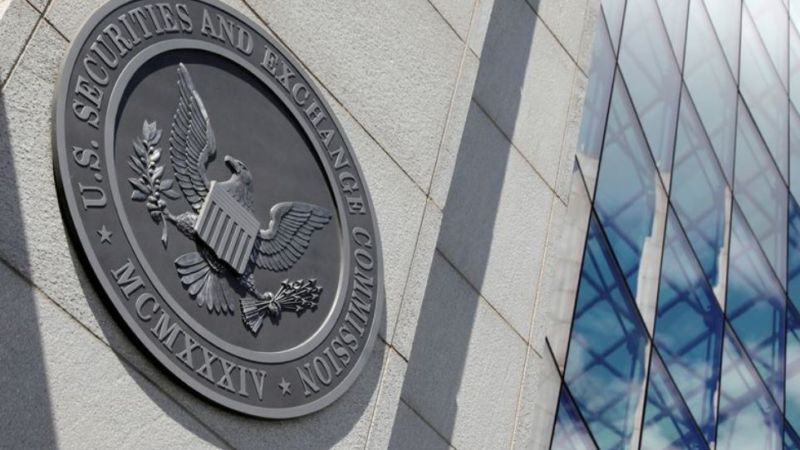The current leadership of the SEC overturned certain curbs on the monetary amount of whistleblower awards that were enacted by the preceding administration
The Securities and Exchange Commission (SEC) said last week that it had restored the potential for some whistleblower awards that were curbed under the prior SEC administration, prompting swift dissents from Republicans who had supported the rollbacks.
Whistleblower advocates strongly opposed changes adopted during former SEC Chairman Jay Clayton’s leadership which allowed the agency to decrease awards when the tips led to actions by other agencies. Under the newly approved rule changes the SEC Office of the Whistleblower cannot reduce awards in such cases, and will only allow discretionary increases.
The SEC Republican members argued that the Office of the Whistleblower fielded a record number of tips in 2020 under the rule that curbed outside awards without causing any visible harm to the whistleblowing program. The SEC Office of the Whistleblower, however, has previously linked that pandemic-year’s surge to the shift to remote operations that made it easier for employees to make claims.
The former chairman, prior to joining the SEC, had participated in a legal group study of the whistleblower award system that suggested limiting the program, which has paid $1.3 billion since it began in 2010. After initially proposing a cap on awards of more than $100 million, the agency pulled back the proposal under intense criticism from lawyers and lawmakers. Instead, Clayton’s SEC implemented less-sweeping changes that gave the whistleblower office discretion to reduce awards and curbed payouts for “related actions” taken by other agencies.
The two rules reversing the old SEC’s rules Rule 21F-3 and Rule 21F-6 of “The Commission’s Whistleblower Rules” that were adopted last week will:
-
-
- allow the SEC to consider paying a whistleblower award for information that resulted in a penalty by an authority other than the SEC; and
- affirm the Commission’s authority to consider increasing the dollar amount of a potential award, “but not to lower an award.”
-
SEC Chairman Gary Gensler, a strong advocate of the whistleblower program, said the first rule “expands the circumstances in which a whistleblower who assisted in a related action can receive an award from the Commission for that related action rather than from the other agency’s whistleblower program.” The second rule change, he said, “will give whistleblowers additional comfort knowing that the Commission would not decrease awards based on their size.”
Republican commissioners, now in the minority on the Commission, argued that the agency failed to properly analyze the impact of the changes. SEC Commissioner Hester Pierce accused the agency under Gensler of repeatedly scrapping his predecessor’s change “even though the ink was barely dry on the last set of amendments.”
Study shows awards went to small group of whistleblowers
The two minority Republican commissioners argued that the rule revisions add to confusion over the program. SEC Commissioner Mark Uyeda said such an action “risks eroding the Commission’s regulatory credibility” and should be undertaken only after a review of how the process works overall. “Such a review could also evaluate the role played by lawyers representing whistleblowers on a contingency fee basis and how they present tips to the Commission,” Uyeda said, referencing to a new study that reported the whistleblower program had become dominated by a handful of law firms and specialists, including some former SEC officials.
The Republican commissioners argued that the complexity of the review process has favored tipsters who are represented by lawyers making large claims rather than employee insiders that they argued the program was supposed to encourage.
The study, The Whistleblower Industrial Complex, by Alexander Platt, a professor at the University of Kansas School of Law, found that “tipsters represented by lawyers significantly outperform unrepresented ones, repeat-player lawyers outperform first-timers, and lawyers who used to work at the SEC outperform just about everybody.”
Platt said the program has created a “free private outsourcing program” that may not serve the public interest. He said the elite whistleblowing legal community “sifts through claims from prospective clients and generates hundreds of millions of dollars in fees and expenses from these programs, with a disproportionate share going to a concentrated group of well-connected, repeat players.”
The SEC has sought to deflect such charges in the past by citing the program’s impact as a growing source of enforcement actions that have served a public interest. Whistleblower advocates have argued that the disproportionate presence of specialized whistleblower firms in awards reflects their expertise in providing the enforcement with actionable information.
Gensler, in a statement supporting the new rules, said “these rules will strengthen our whistleblower program. That helps protect investors.”







